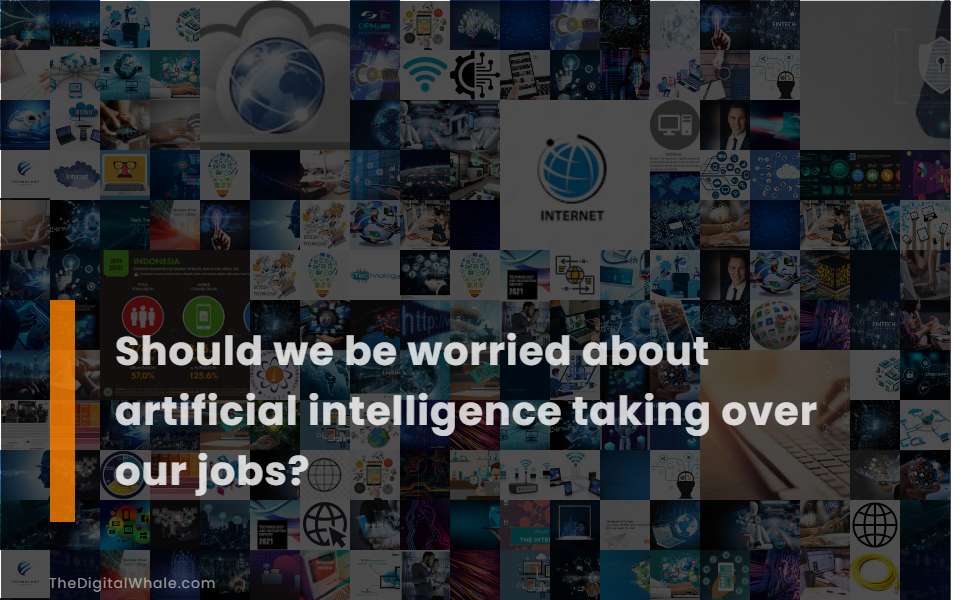Should We Be Worried About Artificial Intelligence Taking Over Our Jobs?
What are the benefits of artificial intelligence for the workforce? What is the average salary for a job in the United States? Let's find out more about Should We Be Worried About Artificial Intelligence Taking Over Our Jobs?.

300 million jobs could be lost to AI worldwide by 2030.
By 2030, automation, including AI, is projected to displace between 400 and 800 million jobs globally, with up to 375 million people needing to switch occupational categories. This development underscores significant job displacement and the pressing need for widespread skill adaptation. The implications of such drastic changes in the job market are profound, necessitating initiatives like universal basic income to serve as potential solutions. For more insights on how AI influences job displacement and interventions, the Seven Pillars Institute provides a thorough analysis on the subject.
14% of global workers will have to change their career due to AI by 2030.
By 2030, an estimated 14% of global employees may need to change their careers due to advancements in digitization, robotics, and AI, as predicted by the McKinsey Global Institute, highlighting the significant impact of automation on the workforce.
60% of jobs in advanced economies are at risk of being replaced by AI.
In Advanced Economies, 60% of jobs are at risk of being impacted by AI, with significant potential for both beneficial and detrimental outcomes, including job displacement and the need for workers to adapt to new technologies. To understand more about this transformation, explore the detailed AI Replacing Jobs Statistics, which provide insights into how these changes could reshape the workforce landscape.
24% of all workers worry that AI will soon make their job obsolete.
Approximately 24% of all workers are concerned that AI will soon make their job obsolete, reflecting a significant level of anxiety among the workforce regarding the impact of AI on job security. This growing apprehension highlights the transformative effects artificial intelligence may have on various industries, leading employees to question the future stability of their employment opportunities.
Around a fifth of US workers fear AI will make their jobs obsolete, a phenomenon known as FOBO.
Around a fifth of US workers, particularly college-educated individuals and those earning less than $100,000 annually, fear that AI will make their jobs obsolete, a phenomenon known as FOBO (Fear of Becoming Obsolete), driven by the rapid advancements in AI technologies like ChatGPT. This fear is highlighted by a recent Gallup poll, which shows a significant increase in concerns about job obsolescence due to technological advancements.
Related:
What challenges will workers face in the coming years as technology advances? What are the future prospects for technology in the workplace? Let's find out more about The Future of Technology and Its Impact On the Workplace.
By 2025, two million workers in manufacturing could be replaced by automated tools.
By 2025, approximately two million workers in the manufacturing sector could be replaced by automated tools, according to a report from MIT and Boston University, highlighting the significant impact of AI and Robotics on manual labor-intensive jobs.
14% of workers have already experienced job displacement due to AI.
Approximately 14% of workers have already experienced job displacement due to AI, indicating that while the current impact is significant, it is somewhat more restrained than the anticipated future effects. Projections suggest much larger job displacements by 2030, underscoring the critical need to understand how advances in artificial intelligence will transform the workforce. For a deeper insight into these trends, explore the comprehensive statistics on the AI Replacing Jobs page. As we move forward, it is essential to adapt to the evolving job market shaped by technological advancements.
In May 2023, 3,900 US job losses were directly linked to AI.
In May 2023, Artificial Intelligence (AI) emerged as a significant factor in job displacement within the United States, directly leading to the loss of 3,900 positions. This marked a notable milestone as it was the first instance where AI was specifically cited as a reason for job cuts, contributing to 5% of all job losses that month. The impact was particularly felt in the technology sector, underlining the transformative effects of technology on the workforce. For more detailed insights into this shift, the complete report is available on the Challenger Gray Blog.
Over 120 million workers may need retraining in the next three years due to AI.
More than 120 million workers globally will need retraining in the next three years due to the impact of Artificial Intelligence on jobs, according to an IBM survey analyzed by the MIT-IBM Watson Lab. This finding highlights the need for significant job retraining and reskilling as Artificial Intelligence and related technologies continue to reshape the job market.
AI is expected to impact 80% of the US workforce, affecting at least 10% of their tasks.
AI is expected to impact 80% of the US workforce, with at least 10% of their tasks being affected by large language models, highlighting the significant potential for job automation and task displacement across various sectors. For more in-depth insights on how these advancements might influence employment, you can explore the extensive analysis provided by Exploding Topics. This underscores the growing necessity for both individuals and institutions to adapt to the evolving technological landscape.
Related:
What are the benefits of working from home? What are the biggest changes that technology has made to the way we work? Let's find out more about How Technological Advances Are Changing the Way We Work.
